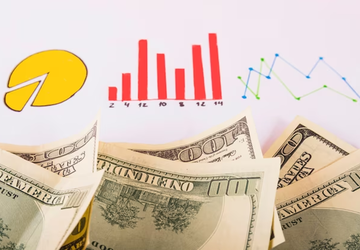When unravelling the complexities of the stock market, one pivotal question often emerges: who controls stock prices, and how are stock prices set? This query leads us into the intricate world of financial markets, where multiple factors govern the mechanisms of setting stock prices. Understanding stock price mechanics requires a deep dive into the interplay of market forces, investor psychology, and economic indicators.
Supply and Demand: The Core Drivers
Central to understanding stock price mechanics is the principle of supply and demand. The equilibrium between buyers and sellers in the market primarily sets stock prices. When demand for a stock outweighs its supply, prices tend to rise. Conversely, an excess supply over demand drives prices down. This dynamic interaction is the bedrock of how stock prices are set, reflecting the collective sentiment and valuation of market participants.

Market Sentiment and Investor Psychology
Delving deeper into who controls stock prices, we encounter the realm of market sentiment. Investor perceptions, fueled by news, financial reports, and market trends, significantly sway stock prices. Positive developments or expectations can boost demand, thereby increasing prices, while negative sentiments can trigger sell-offs, leading to price declines. This psychological aspect of the market is crucial in understanding stock price mechanics.
Economic Indicators and Global Events
The influence of broader economic indicators and global events must be balanced when contemplating how stock prices are set. Interest rate changes, inflation rates, geopolitical events, and economic policies are potent drivers of stock market movements. Investors' reactions to these macroeconomic factors play a significant role in the dynamics of who controls stock prices, often leading to rapid adjustments in the market.
Technological Impact on Stock Pricing
In the modern era, technology, particularly algorithmic trading, has added a new dimension to how stock prices are set. High-frequency trading algorithms can execute massive volumes of trades in milliseconds, capitalising on minute price movements. This technological evolution has added a layer of complexity to understanding stock price mechanics, influencing the speed and volatility of price changes.
In-depth understanding of Stock Price Determination
Diving deeper into the realm of stock markets, the question of who controls stock prices and how stock prices are set becomes more intricate. The formation of a stock's price is a dynamic and complex process influenced by a tapestry of factors beyond simple supply and demand dynamics. This comprehensive exploration is essential for understanding stock price mechanics at a deeper level.
The Interplay of Institutional and Retail Investors
In the conversation about who controls stock prices, the roles of both institutional and retail investors are paramount. Institutional investors, like mutual funds, pension funds, and insurance companies, command significant capital and can move markets with their investment decisions. On the other hand, individual or retail investors, though holding lesser financial clout individually, collectively contribute to how stock prices are set through their aggregated buying and selling decisions.
Market Makers and Their Role in Price Setting
Market makers, often overlooked, play a critical role in understanding stock price mechanics. These entities facilitate trading by always being ready to buy or sell a particular stock, thus ensuring liquidity in the market. They work on the bid-ask spread and can influence how stock prices are set by setting the price at which they're willing to trade.
Algorithmic Influence on Stock Prices
In today's digital era, algorithmic trading systems have a significant impact on who controls stock prices. These sophisticated computer programs analyse multiple market factors at incredible speeds to make trading decisions. Their ability to process vast amounts of data and execute trades instantaneously has transformed how stock prices are set, sometimes leading to rapid market movements.

External Factors Shaping Stock Prices
External factors, ranging from geopolitical developments to fiscal policies and global economic conditions, also shape how stock prices are set. Investors' perceptions of these external factors, combined with their potential impacts on companies' future earnings, can lead to significant fluctuations in stock prices.
The Influence of Media and Analyst Reports
Media reports and analyses by financial experts can dramatically sway investor sentiment, thus influencing who controls stock prices. Positive news or favourable analyst reports can lead to increased investor confidence and higher stock prices, while negative news can result in declining prices.
Conclusion: A Multifaceted Process
In sum, who controls stock prices is not dictated by a single entity but is the outcome of a multifaceted process. It's a confluence of supply and demand, investor sentiment, economic factors, and technological advancements. The nuances of how stock prices are set reflect the dynamic and interconnected nature of the global financial markets, making understanding stock price mechanics fascinating.
Faqs
FAQ 1: How Do Economic Reports Influence Stock Prices?
Answer: Economic reports play a crucial role in how stock prices are set. Reports such as GDP growth, unemployment rates, and consumer spending can significantly impact investor sentiment regarding the health of the economy and specific sectors. Positive economic data can boost confidence in the market, leading to higher stock prices, while negative reports can cause prices to fall. These fluctuations are a key aspect of understanding stock price mechanics.
FAQ 2: What Is the Impact of Algorithmic Trading on Stock Prices?
Answer: Algorithmic trading, which uses computer programs to execute trades based on predefined criteria, has transformed who controls stock prices. These algorithms can analyse market data and execute trades at speeds and volumes far beyond human traders. This can lead to rapid price movements, both upwards and downwards, significantly influencing how stock prices are set and adding a layer of complexity to the stock market.
FAQ 3: Can Social Media Impact Stock Prices?
Answer: Yes, social media can have a notable impact on how stock prices are set. Information shared on platforms like Twitter or financial forums can sway the opinions and decisions of a large number of investors quickly. This phenomenon has become increasingly relevant, showing that who controls stock prices can extend to influencers and public sentiment expressed through social media, thereby affecting stock market dynamics clearly.
















